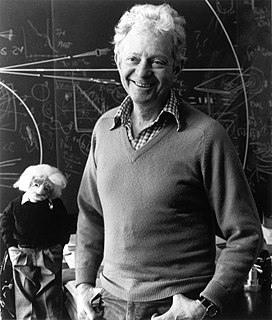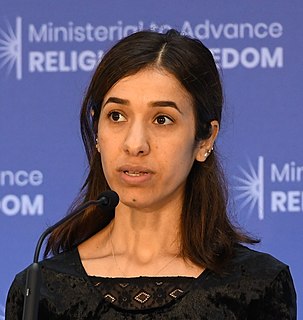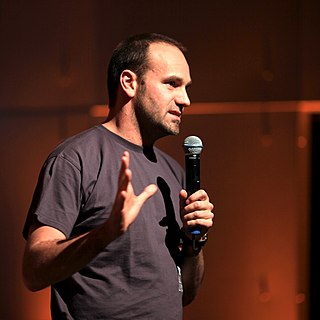A Quote by Terry Pratchett
Credulous: having views about the world, the universe and humanity's place in it that are shared only by very unsophisticated people and the most intelligent and advanced mathematicians and physicists.
Related Quotes
Whenever I want to represent or depict the official version, I will refer to them as 'mathematicians' or 'mathematical physicists' or idiots or something like that. There are no physicists in mainstream 'Physics.' From Newton to Einstein to Hawking, they are all just mathematicians as far as Science and Physics are concerned.
My view is there will be problems and bad people as long as the earth exists, and since we're moving into a completely interdependent global environment, we're better off building a world we'd like to live in when the United States are not the only military superpower. That is, we need to build a world of shared responsibility, shared benefits, and shared commitment to our common humanity.
I am obliged to interpolate some remarks on a very difficult subject: proof and its importance in mathematics. All physicists, and a good many quite respectable mathematicians, are contemptuous about proof. I have heard Professor Eddington, for example, maintain that proof, as pure mathematicians understand it, is really quite uninteresting and unimportant, and that no one who is really certain that he has found something good should waste his time looking for proof.
Free software is part of a broader phenomenon, which is a shift toward recognizing the value of shared work. Historically, shared stuff had a very bad name. The reputation was that people always abused shared things, and in the physical world, something that is shared and abused becomes worthless. In the digital world, I think we have the inverse effect, where something that is shared can become more valuable than something that is closely held, as long as it is both shared and contributed to by everybody who is sharing in it.
Physicists only talk to physicists, economists to economists-worse still, nuclear physicists only talk to nuclear physicists and econometricians to econometricians. One wonders sometimes if science will not grind to a stop in an assemblage of walled-in hermits, each mumbling to himself words in a private language that only he can understand.
Most people think leadership is about being in charge. Most people think leadership is about having all the answers and being the most intelligent person or the most qualified person in the room. The irony is that it is the complete opposite. Leadership is about empowering others to achieve things they did not think possible. Leadership is about pointing in the direction, articulating a vision of the world that does not yet exist. Then asking help from others to insure that vision happens.
I have an abiding interest in how ordinary people produce knowledge, and what it means for individuals to know the world. I thought I'd be a theoretical physicist because I love physicists' views of the world - I find general relativity and quantum theory thrilling - but I have always felt uneasy with the idea of an Ultimate Truth. One of the functions of science is to help us instrumentally; it helps us to build things like microchips and GPS satellites. But another function of science in the modern world is to help us feel "at home in the universe".
After all, is it not the way we humans shape the universe, shape time itself? Do we not take the raw stuff of chaos and impose a beginning, middle, and end on it, like the simplest and most profound of folktales, to reflect the shapes of our own tiny lives? And if the physicists are right, that the physical world changes as it is observed, and we are its only known observers, then might we not be bending the entire chaotic universe, the eternal, ever-active Now, to fit that familiar form?

































